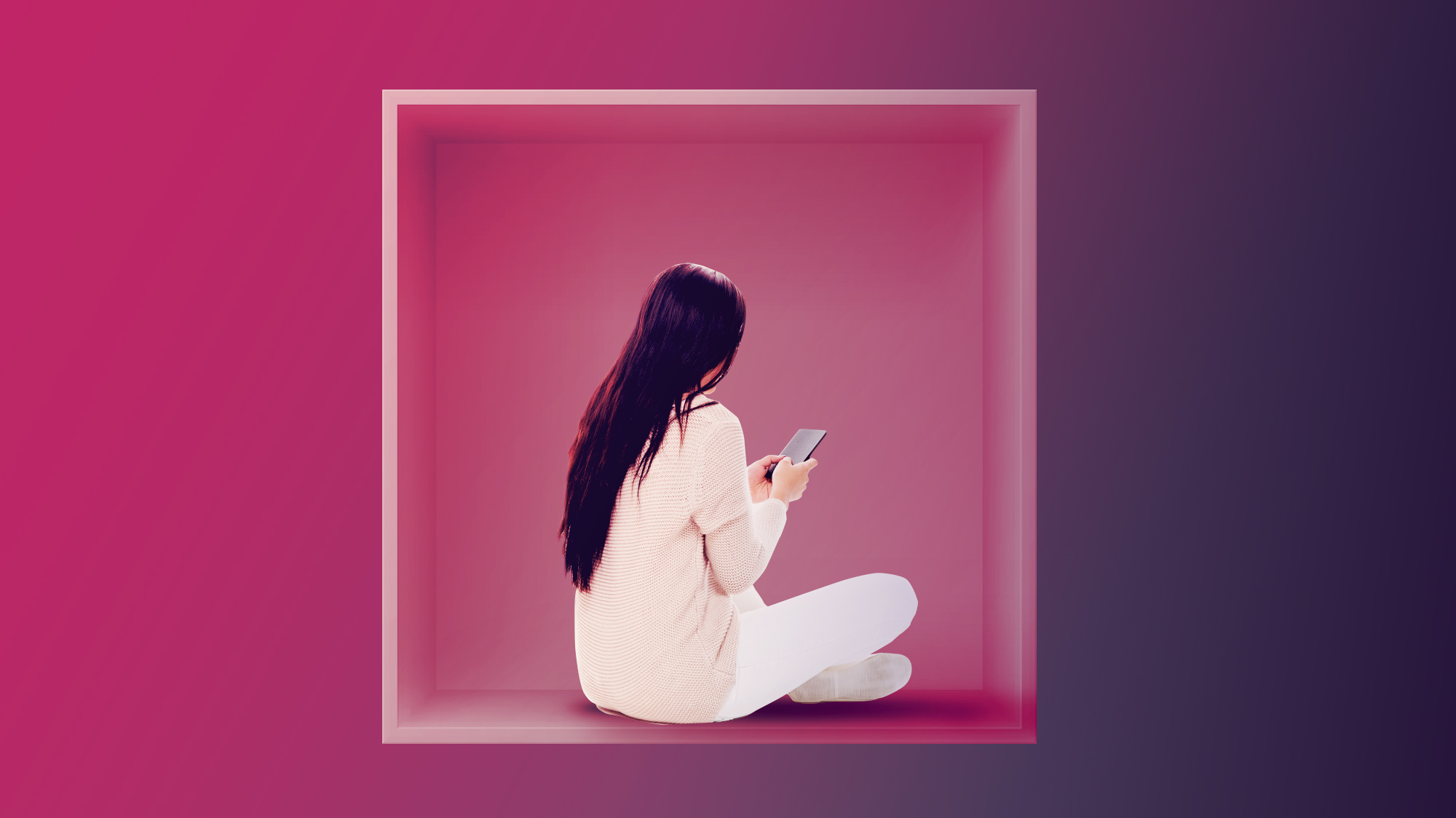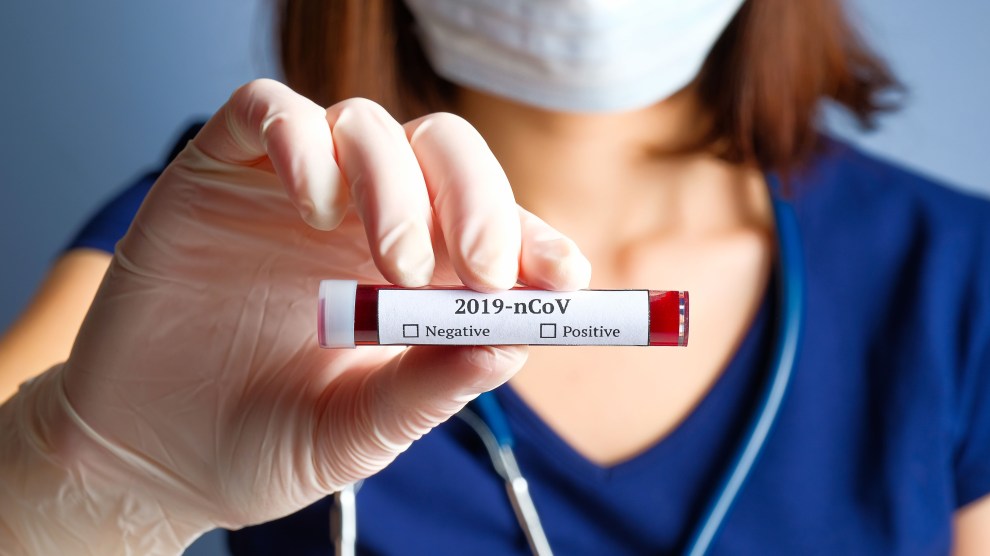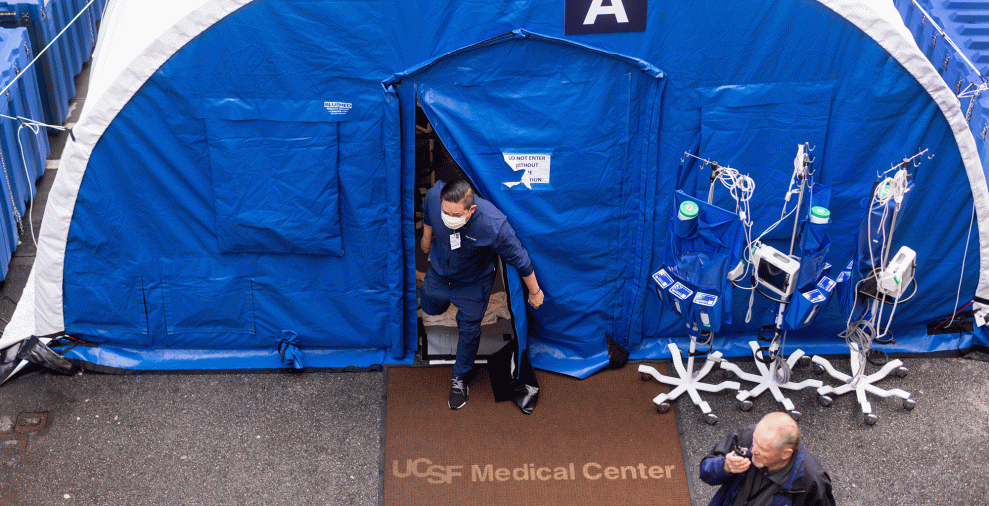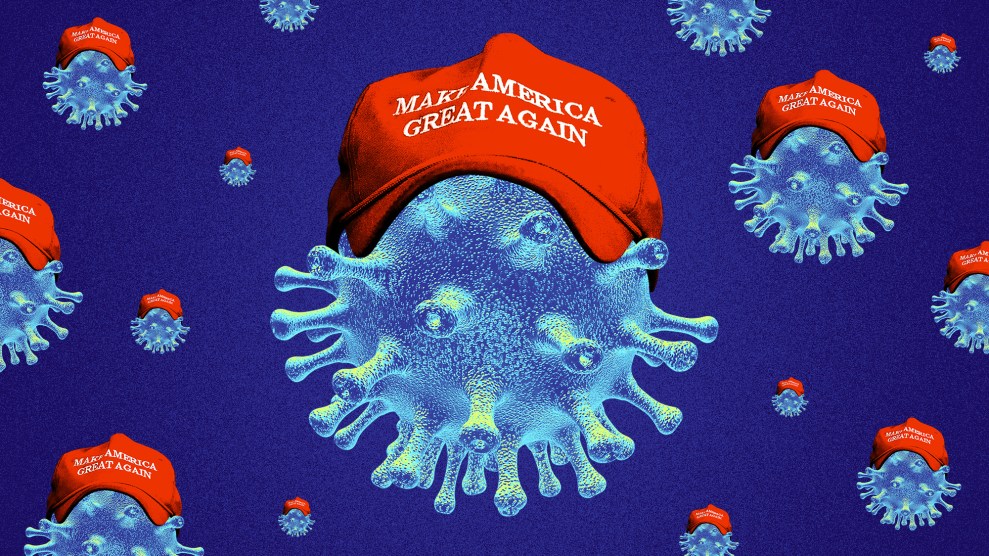Last week, after San Francisco announced a citywide “shelter-in-place” order, but before the order went into effect at midnight, a guy who I’ve seen on and off for a few months texted me. “Well, looks like tonight might be the last opportunity for this for a while,” he wrote. “Are you free?”
An apocalyptic booty call is, I have to say, a very weird experience—it felt like at the strike of midnight, we’d turn into asexual pumpkins. Before he left, I asked him for a favor unusual for any sort of booty call: Could he, um, unscrew the cap off a bottle of olive oil that I couldn’t open? Believe me, I was judging me, too. But the metal band on the cap wasn’t fully perforated, and taking a knife to the metal hadn’t worked, and all the olive oil at the nearby supermarket had been snatched up, and I genuinely didn’t know the next time another human would set foot in my apartment.
This is the thing about quarantining: It makes the dynamics of personal relationships crystal clear. Is there a person in your life who you’re willing to be stuck with, maybe even to get sick with? Oil Man and I had established long ago that things between us weren’t serious, but I can only imagine the conversations going on in nascent relationships, like the universe forcing a DTR: We may be dating, but are we quarantining?
I am a 30-year-old living in a sunny studio in San Francisco—a proudly independent woman, with the apparent exception of olive oil caps. Compared to many people in the world, I’ve had it incredibly easy over the past few days: My quarantine life has consisted mostly of me sitting on my couch, interviewing people over the phone and tapping away at my computer. Zoom dinners with dear friends have become a near-nightly fixture. My parents and brothers call all the time. I feel, in many ways, more connected to my social circles than ever before. (Sometimes, even, too connected—I’ve had to mute myself in Zoom meetings because the couple who live in the apartment next door have made it clear that they feel very connected to each other at around 11 a.m. every day.)
At the same time, there’s no getting around the fact that the Age of Coronavirus is a bizarre—and, at times, acutely lonely—time to be single. The rabbit holes of singledom seem to multiply when you’re by yourself for weeks on end: There’s the ever-ticking biological clock for aspiring mothers of a certain age, plus the questions about how long you’ll be on your own, if you’ll ever find a partner—I could go on and on.
A few days ago, after ignoring the apps for a while, I decided to sign on. When smiling dudes populated my screen, I thought, “Oh, here are all of my people!” Rest assured that this is not a feeling I have had literally ever before on a dating app. But there was a strange comfort in knowing that these dudes were also probably some combination of bored and lonely. It appears I’m not the only one turning to the apps: Bumble saw a 21 percent increase in the messages sent in the US between March 12 and March 19, with even bigger rises in coronavirus hotspots where social distancing orders went into effect, like New York City (23 percent) and San Francisco (26 percent). Tinder saw similar increases internationally, with particularly big spikes in Italy and Spain.
All of which begs the question, how exactly does one date during a pandemic?
The cringingly topical pickup line seems to be a popular way to start. I recently got a message reading, “If coronavirus doesn’t take you out, can I?” (Thanks, but no thanks, Andy.) A colleague received, “I don’t know what’s more attractive—your killer dance moves or the idea of weathering the apocalypse together.” One personal favorite, from a Twitter user: “A guy on Hinge asked me to self-quarantine with him. We’d never met, had been messaging for 3 minutes. The kicker? He’s a doctor at Mt. Sinai.”
The first dates seem straightforward enough: The apps have been encouraging video chats (as Hinge calls it, “dating from home”). Those swiping on Bumble will come across banners like “SOCIAL DISTANCING ≠ LONELINESS” and “Get together while staying apart,” urging users to connect virtually using the app’s in-platform video and call features. Tinder is making Passport, usually a feature just for paying users, open to everyone, unleashing the positively overwhelming option of matching with people not just near you, but anywhere in the world. (“While we all know we need to stay home, the Tinder community has shown us that this doesn’t mean we have to be alone with our thoughts and a tower of Top Ramen,” a recent Tinder press release assured.)
More perplexing is how to proceed if things go well. Do you, as one coworker suggested, go for a walk six feet apart, half-shouting, HOW MANY SIBLINGS DO YOU HAVE? How many dates should you go on before you douse each other in Purell and hold hands? If either of you lives with a group, do you pause during the lean-in to the kiss to make a quick call to the roommates, asking to add one more to the quaran-team?
Or: If you decide that dating during a pandemic isn’t your thing and you put Bumble on “snooze” mode, which of the four options do you choose as your reason for taking a break from the app? “![]() I’m traveling” is certainly not true. “
I’m traveling” is certainly not true. “![]() I’m on a digital detox” seems highly unlikely. “
I’m on a digital detox” seems highly unlikely. “![]() I’m prioritizing myself” and “
I’m prioritizing myself” and “![]() I’m focused on work” don’t seem quite appropriate for this current moment. Alas, Bumble does not offer, “
I’m focused on work” don’t seem quite appropriate for this current moment. Alas, Bumble does not offer, “![]() I’m flattening the curve.”
I’m flattening the curve.”
At its best, app dating under normal circumstances feels like an entertaining social experiment with potentially life-altering rewards. After a good first date, you cherish the butterflies until the next encounter, and the one after that. You screenshot the particularly bewildering profiles, marveling that anyone would choose to finish the prompt, “Dating me is like,” with “accidentally spilling pop rocks in your underwear.” You swap first date stories with friends. (I realized I’d reached peak Silicon Valley when a roboticist told me over drinks that he had spent hours on his passion project of building a “self-raking Zen garden.”)
But sometimes, it’s less hilarious. The mediocre dates blur together. The disappointing Wednesday night beers with Platonic San Francisco Man (software engineer who loves cycling/skiing/Burning Man and is trying out meditation), the evenings swiping on the couch, the blithe conversations with friends about dating—it all starts to feel like an exhausting exercise in ignoring the loneliness tucked away in a dark corner. After all, who really wants to acknowledge that it’d be nice to have a little company?
Now, it appears, everyone does. The paradoxical silver lining of extreme social distancing is that it seems to have given people, single or not, license to talk freely about loneliness—a bright light switched on, the shadows giving way to the real deal. News outlets, including the Wall Street Journal, Fox News, the New York Times, Vox, and the New Yorker have published long pieces over the past week about the psychological costs of loneliness: how it fuels anxiety and depression, and how, when chronic, it takes years off your life. National Geographic has a haunting series of portraits of subjects looking out their windows or doorways, alone. The stories—particularly those about the elderly—are gut-wrenching. Politicians and celebrities, from Andrew Cuomo to Lizzo, are talking about the toll of isolation, too.
At work, a meeting that once happened every other week is now happening once a week over Zoom, simply because everyone misses being in touch with other humans. One coworker recently told me about how, after a few glasses of wine during a virtual happy hour, she decided to rearrange her apartment at midnight, moving a heavy table through a small doorway, piling up her furniture like Tetris. “Nothing like those moments to feel uniquely alone and to stubbornly carry on,” she wrote over Slack, from her newly reconfigured living room. Of course, moments like this happen all the time when you’re a single person living on your own—her story brought to mind a late night I spent installing blinds after breaking up with a long-term boyfriend years ago. It just never occurred to me at the time to tell coworkers about it.
There’s not a whole lot about this period in history that we’ll look back on fondly, to put it mildly. But I do hope that when this is all over, I don’t kick the loneliness that’s left to its usual spot in the dark corner. There’s something empowering about dragging it out for all to see—and watching others doing the same. When I listen to Wesley Morris, host of the New York Times’ Still Processing podcast, say, “I haven’t hugged anybody in a week, and I’ve been eating from the same pot of soup for about eight days! I’m losing my mind!” I want to say, I hear you, Wesley. When I see Linda Holmes, the host of NPR’s Pop Culture Happy Hour, tweet, “Good morning! Special fist-bump to people like me who live alone (when it comes to humans). It’s not forever. You’re doing great” I want to scream, YOU TOO, LINDA. When, on the dating apps, I ask a guy how his quarantine is going, and he says, “Oh you know, one day blends into the next and nothing makes sense anymore. Got some great vegan mac at Trader Joe’s though. So silver linings and all that,” I want to ask, Shall we half-shout six feet apart together?
















